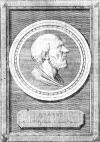Aratus poet from Greece was born in 315 Before Crist, had 70 years and died in 245 Before Crist. Poems were written in Ancient mainly in Greek language. Dominant movement is classicism.
Biography
Aratus (Ancient Greek: Ἄρατος ὁ Σολεύς; ca. 315 BC/310 BC – 240 BC) was a Greek didactic poet. His major extant work is his hexameter poem Phaenomena (Φαινόμενα "Appearances"), the first half of which is a verse setting of a lost work of the same name by Eudoxus of Cnidus. It describes the constellations and other celestial phenomena. The second half is called the Diosemeia (Διοσημεῖα "Forecasts"), and is chiefly about weather lore. Although Aratus was somewhat ignorant of Greek astronomy, his poem was very popular in the Greek and Roman world, as is proved by the large number of commentaries and Latin translations, some of which survive.
There are several accounts of his life by anonymous Greek writers, and the Suda and Eudocia also mention him. From these it appears that he was a native of Soli[1] in Cilicia, (although one authority says Tarsus). He is known to have studied with Menecrates in Ephesus and Philitas in Cos. As a disciple of the Peripatetic philosopher Praxiphanes, in Athens, he met the Stoic philosopher Zeno, as well as Callimachus of Cyrene and Menedemus, the founder of the Eretrian School.
About 276 BC he was invited to the court of the Macedonian king Antigonus II Gonatas, whose victory over the Gauls in 277 BC Aratus set to verse. Here he wrote his most famous poem, Phaenomena ("Appearances"). He then spent some time at the court of Antiochus I Soter of Syria, but subsequently returned to Pella in Macedon, where he died sometime before 239/240 BC.[2] His chief pursuits were medicine (which is also said to have been his profession), grammar, and philosophy.






